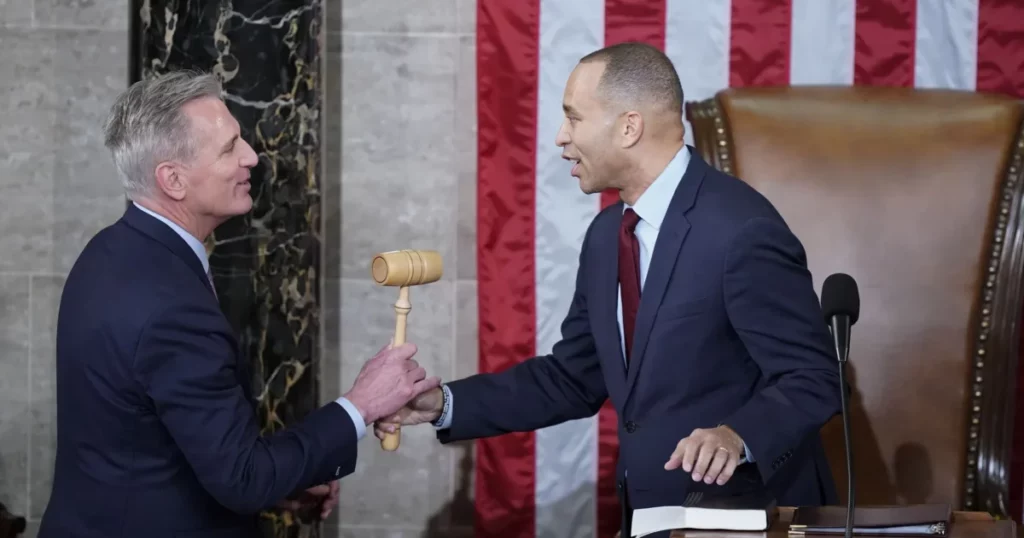**House Speaker McCarthy and Minority Leader Jeffries have denied striking a deal to secure Democratic votes for the debt ceiling bill. Claims of federal funding for projects in Democrat districts have been refuted by both leaders, despite allegations from Democratic sources.**
The Fiscal Responsibility Act (H.R. 3746) had an unusual vote turnout in the GOP-controlled House, with 169 Democrats supporting it and only 149 Republicans voting “Yes.” Four Democratic sources claimed there was a secret agreement between House Speaker Kevin McCarthy (R-CA) and Minority Leader Hakeem Jeffries (D-NY), involving earmarks or “community project funding” in Democrat districts to secure votes. Both McCarthy and Jeffries, however, have refuted the existence of any such deal through their spokespersons.
This vote has raised eyebrows, as the contentious issue of the debt ceiling usually has clearer party lines. The mix of support for the bill has led to rampant speculation about possible backdoor deals to secure votes, with both McCarthy and Jeffries feeling the need to address such claims publicly. As the discord among party lines continues, it is now more critical than ever to identify whether any deals were made to advance the controversial debt ceiling bill.
Several Republicans have had strong reactions to the alleged deal. Rep. Dan Bishop (R-NC) tweeted a cryptic “Shot and chaser,” while Rep. Chip Roy (R-TX) shared his dissatisfaction with a tweet that read: “Earmarks! Sell! Sell! Sell! #NoDeal[.]” These reactions show that some view the possibility of a secret deal as a betrayal to their party and constituents, stirring further doubt about the integrity of the voting process.
The refusal of McCarthy or Jeffries to admit any involvement in a deal casts a shadow over the credibility of the Democratic sources who alleged such an agreement. However, the question remains: why were there more Democratic votes for a debt ceiling bill in a GOP-controlled House?
The alleged deals between the two leaders could signal a more extensive problem within the US political system, where politicians may be willing to compromise their values and the interests of their respective parties for personal gain. Moreover, if such deals can be made and unravel so easily, it places the very foundation of trust in our democratic process at risk.
Further investigation into whether any deals were made for the advancement of the debt ceiling bill is needed. Transparency in the decision-making process from both political leaders and lawmakers is paramount to maintaining trust in the system. The refusal of McCarthy and Jeffries to admit to any deal, regardless of the outcome, highlights the importance of vigilance in protecting the integrity of our ever-changing political landscape.
**The denial by both McCarthy and Jeffries may have addressed the allegations, but it has left unanswered questions about the voting process and the influence behind it. The importance of transparency in our political system has been underscored, as trust in the democratic process



